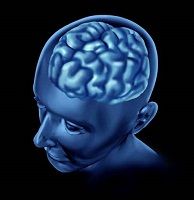Neurology Meeting Underway in Washington
The American Academy of Neurology's 67th annual meeting starts April 18 in Washington, D.C. and neurologists attending are expecting to hear more about marijuana and seizures, a cheaper MS drug, and whether sleep apnea leads to dementia. A team from MD Magazine will be at the conference with daily news reports and video interviews.

The American Academy of Neurology’s 67th annual meeting starts April 18 in Washington, D.C. and neurologists attending are expecting to hear more about a wide variety of topics.
A team from MD Magazine will be at the conference with daily news reports and video interviews.
While no broad ground-breaking, practice-changing clinical trials are expected—nothing like the reports of trials on interventional clot removal reported at the American Stroke Association’s February meeting in Nashville, TN--there are several studies physicians said they are eager to hear more about.
One study will report on the effects of a marijuana derivative on seizure patients.
“Every time we hear the word marijuana in a study half the people are terrified and half are excited,” said David Josephson, MD, a neurological interventionalist based in Indianapolis, IN. The study is expected to report the drug derivative, which Josephson said is made from the plant but without the psycho-active substance, has had good results in treating epilepsy.
It is eagerly awaited because about a third of these patients have uncontrollable seizures, Josephson said.
Also on his list of interesting studies is one on the results researchers got using a generic version of Teva Pharmaceutical’s Copaxone, the multiple sclerosis drug. The generic was approved this week by the US Food and Drug Administration, but Josephson said the data from trials had not been widely seen.
“MS is the eighth-most-costly disease treated in the US,” he said. A generic version of the drug should cut that cost, as long as it works as well as the brand name pharmaceutical.
On still another disease front, Josephson said he was looking forward to hearing more about research that found that treating sleep apnea—a condition he said is found in about 20% of the population—wards of the onset of Alzheimer’s disease and dementia.
“Who knows what the mechanism might be,” he said, but staving off severe mental decline would also have a benefit for the nation’s health care costs.
Josephson specializes in adult and child neurology. The neurology practice he started now includes more than 30 physicians in 8 locations in central Indiana.